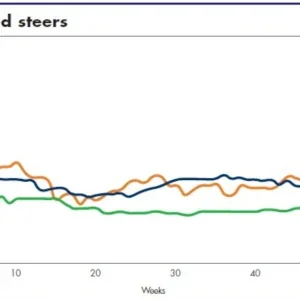On my most recent visit to Mexico in mid May, while I was disembarking, a health official greeted us on the tarmac, with a surgical mask strapped around his face. Proceeding to customs, all of the immigration officers had followed suit.
While Mexico has yet to experience its first SARs case, it is evident the country is making every effort to keep its borders free of the health risk. Given the obvious economic negative impact experienced in China and Hong Kong, who can blame them?
At the moment, it is unclear what type of impact or effect the SARs epidemic will have on the leather business in Mexico. Initially, following the rescheduling of the APLF from early April to June and eventual cancellation, there was talk of major shoe companies heading south of the border in an urgent pursuit to consider shifting some of their operations to Mexico. In fact, this became evident the week following the Easter holiday in late April.
While this is clearly a scenario Mexican tanners would gladly welcome with open arms, it is something which has not yet taken effect. In fact, although the Mexican peso has clearly strengthened a good 8-9% following the war in Iraq, business remains a bit sluggish. Yes, while it is generally the weaker time of year vis a vis hide purchases and leather orders, this only adds continued uncertainty to what has been a truly weak leather business to date in 2003.
In recent weeks, hide prices have tried to maintain a steady level. However, in mid May, many US hide traders headed to León in an attempt to offload some items, mainly lower grade hides such as renderers and small packers. These were at attractive prices in hopes of obtaining both prompt shipment and, of course, more importantly, prompt payment.
Although interest in purchasing hides remains very strong, Mexican tanners are facing the usual dilemma: liquidity. The late arrival of the Easter holiday was mainly to blame, along with the war in Iraq. And, despite SARs being viewed as a future business-building potential, it is causing a delay in hide orders as tanners are fully aware of the setbacks currently being experienced by hide trading companies in shipping their containers to the Far East. Naturally, bids are being placed; however at several dollars below the asking price.
Given the cancellation of the APLF in 2003, it will be very interesting to see how business unfolds for Mexico in the second half of the year. Without question, hide traders and tanners alike are expecting a very strong season.
Ana Veloso,
Barrett Hides






